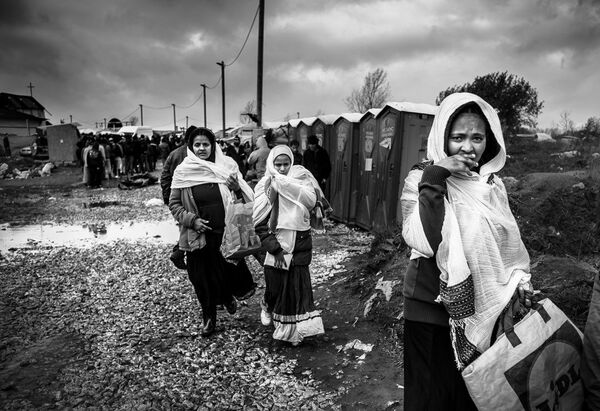Balibar, who currently teaches philosophy and political theory at Paris West University Nanterre La Défense, the University of California, Irvine and Kingston University in London says the reaction to the current European refugee crisis has set in motion the collapse of the EU.
"The fact is already there. And the consequences will be disastrous. Not just for the 'European project', or for the European Union as an institution, but for the people who compose it, and each of us as individuals and as citizens," he wrote in an opinion column in Libération.
#philosophy and #politics today, a discussion w/ #EtienneBalibar https://t.co/Feau3e8FyU 10 March @ifru_london pic.twitter.com/roh7sAkWOS
— Institut français UK (@ifru_london) February 25, 2016
He said that from the moment German Chancellor Angela Merkel took the "unilateral decision" to drop the Dublin rules — requiring all migrants to be processed at the point of entry into the Schengen borderless zone — setting in train a huge mass movement of people from Syria, Iraq, Afghanistan and other war zones into Europe. France has failed to step up to the mark.
Etienne Balibar on the #ParisAttacks https://t.co/xasxCz8wHQ #CoE_WFD pic.twitter.com/H8YRl8dbkE
— openDemocracy (@openDemocracy) November 17, 2015
He said there were two possibilities for France: support Merkel and the German people or sabotage them.
"After some equivocation, the French government pretended to do the former while, in practice, doing the second," he said.
He said that of the 24,000 refugees France said it would take in, only a few dozens have actually been accepted. Meanwhile, he said that France should not have been surprised that Belgium closed its border with France the moment French interior minister Bernard Cazeneuve began dismantling the Calais "Jungle" camp.
'Collective Disaster'
He said there were two options for France: first, to recognize the political correctness of Merkel's policy of demanding a pan-European response to the crisis — including the reallocation of refugees under a quota scheme — and, second, to immediately reject the isolation of Greece, whose northern borders have been closed by neighboring countries stranding tens of thousands of migrants in the Mediterranean nation.
"It is not enough in this regard, to hypocritically lecture the Balkan neighbors and the Greeks themselves, or to go beg the Turks engaged more actively in the war in the Middle East, promising them a little more money, or load a NATO maritime guerrilla war against the '[people] smugglers'. We need urgent and far-reaching measures, such as in other times of collective disaster," he said.
He said the most obvious plan would be to transfer by aircraft or ship those refugees who have already been identified and who want to live in northern Europe — including France — in countries that can afford to host them, "mobilizing all civil means or military we have."
In a pessimistic conclusion he wrote:
"I'm dreaming, aren't I? No, I have opened the discussion The worst part is the resignation, the blindness, the historic Poujadism [conservative self-protectionism] while donning the appearance of realism. Discuss, I pray you, but do not expect too much because the countdown has begun."



